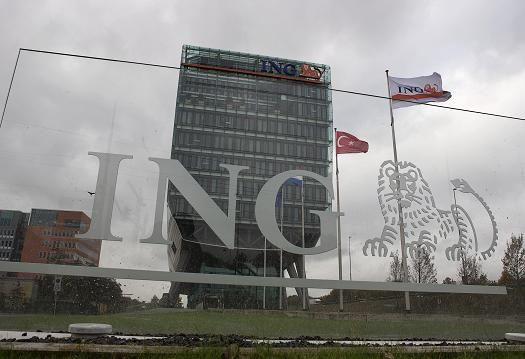ING Scores Big Win In Renegotiation of 2008 Bailout Deal

ING Groep NV said Monday it had brokered a deal to bypass some of the conditions the giant bank had agreed to in 2008 when it received a €10 billion emergency bailout from the Dutch government.
Specifically, the company was given a two-year extension on a previous timeline to divest units in Asia and the Americas, as well as to pay the remaining €3 billion ($3.81 billion at current exchange rates) on its loan.
But even more important than allowing ING an extended period to repay, it appeared the new deal would let the company maneuver so as to use the least painful method of divestment -- an internal subsidiary spin-off -- rather than having to actually sell certain units to third parties.
"We are pleased that the agreement announced today gives us more time and flexibility to complete the required restructuring while leaving our strategic objectives unchanged,” Jan Hommen, CEO of ING, said in a statement in which he emphasized the new deal would allow the company “to make sure that when the circumstances are right, we will be ready for the next steps.”
After taking state aid in the middle of the global financial crisis of 2008, ING had agreed with the Dutch government to embark on a plan that would see it divest a large portion of its assets, including units in Asia, Latin America and the United States, and pay back its extraordinary loans by 2013. The plan would leave ING as a relatively medium-sized bank, not the multinational financial behemoth it was a few years ago, with operations focused on the Netherlands, Belgium and Germany.
But after beginning to sell off assets -- ING says it has written off €500 million in re-structuring costs -- the financial services company complained it was being forced into an unnecessary fire sale. A European Union court agreed with the company earlier this year, something that prompted the European Commission, which had been fighting ING’s protests, to accept a re-negotiation on the terms of the bailout deal. The Dutch government has been siding with the company throughout the process.
It appears ING, which besides offering banking services to its clients sells insurance, has also won tacit approval to switch tactics in terms of how it approaches divestment, perhaps by pursuing a stock-split that spins off different parts of the company amongst current shareholders, rather than by having to haggle with a buyer to sell them different pieces of the company. While the company did not mention this in its statement Monday, the company’s chief executive suggested this as a possible tack on a conference call later in the day.
ING also won big in the latest deal by having the European Union’s anti-monopoly watchdog back off the company as part of the agreement. Using the rationale that the company was being unduly aided by its state bailout, the EU had prevented ING from offering clients more favorable prices for financial services than its competitors. Those restrictions will now be partially lifted.
“The issues created by all the state aid received by ING are adequately addressed by the amended plan,” Competition Commissioner Joaquin Almunia said in a written statement.
Analysts were calling the newest deal a tempered victory for ING.
“It’s good news,” Corne Aben, an Amsterdam-based fund manager at Optimix Vermogensbeheer NV, told Bloomberg. “That increases flexibility, which means they’ll be able to get better prices for the units they want to sell.”
Credit-rating agency Standard & Poor’s wrote in a note to clients that “these amendments provide some extra flexibility for the group in the context of a difficult operating environment.”
The markets were more enthusiastic. Shares of ING Groep NV traded on the Amsterdam Stock Exchange rose on the news, but truly skyrocketed after the North American market open. New York-traded shares of ING recently sold for $8.62, 31 cents or 3.73 percent higher than the previous session’s close.
© Copyright IBTimes 2024. All rights reserved.





















